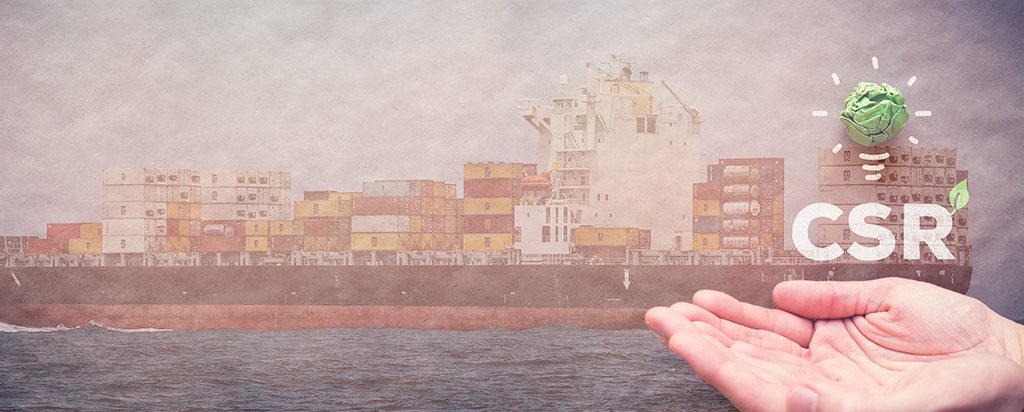
Bunkering Quality Control and CSR in Shipping: The Bunkering at Sea Solution
CSR in Shipping
Corporate Social Responsibility has gradually become a crucial component of international business and branding. CSR is defined by the European Commission as “the responsibility of enterprises for their impact on society.” Companies can become socially responsible by following the law; integrating social, environmental, ethical, consumer and human rights concerns into their business strategy and operations (European Commision: CSR & Responsible Business Conduct).
The Shipping industry, due to its B2B character is a latecomer in the global trend, with Corporate Social Responsibility initiatives being adopted fairly recently as a business philosophy, primarily by the big industry players. One of the reasons for the late adoption of CSR in the Shipping industry, is that it is highly globalized, with extended regulations about the environment, the welfare of shipping professionals, workers safety etc. governed internationally by the IMO.
The benefits of adopting CSR strategies in the maritime industry, follow general business trends: giving back to society and being socially accountable improves the achievement of valuable business goals; such as better relationships within an organization, good reputation in the market, customer and staff loyalty and satisfaction, broader industry security and safety and increased revenue in the long-run.
There have been various industry studies showing that there is still a lot to be done, in the CSR initiatives of many shipping companies. Small and medium size companies in the shipping industry in particular need to further develop their CSR initiatives and actions need to be taken by the industry in order to address the barriers and facilitate CSR engagements.
Environmental CSR in Shipping
With regard to the environment, a more standardized approach is gradually being adopted in Shipping, with Quality Control guidelines and CSR frameworks playing an important role in the operations of major international ports and organizations and IMO regulations becoming stricter.
The IMO, as part of their Environment and Pollution prevention initiatives and in relation to Bunkering Operations, issues guidelines and policies such as Regulation 18 on fuel oil availability and quality or the 2018 “Guidance on best practice for fuel oil suppliers for assuring the quality of fuel oil delivered to ships”.
Poor bunker quality can be a severe financial risk for ship-owners and operators as well as a real danger for the environment.
The Bunkering at Sea Solution
Bunkering at Sea recognizes the importance of environmental initiatives in the Shipping Industry and actively facilitates CSR engagement for its clients.
By donating a portion of the platform profits from all Bunkering transactions and on behalf of Ship-owners to environmental protection initiatives, the platform improves the commercial profile of Shipping Companies and creates new revenue streams as a CSR tool.
In addition to the above the transaction transparency offered by the Bunkering at Sea platform, reinforces business trust and positively influences environmentally safe interactions among parties.
Bunkering at Sea is also looking to develop in the near future additional quality control services for bunkering fuel; through the connection of the platform with relevant testing companies, and through data projection and documentation in the platform of real time fuel analysis.